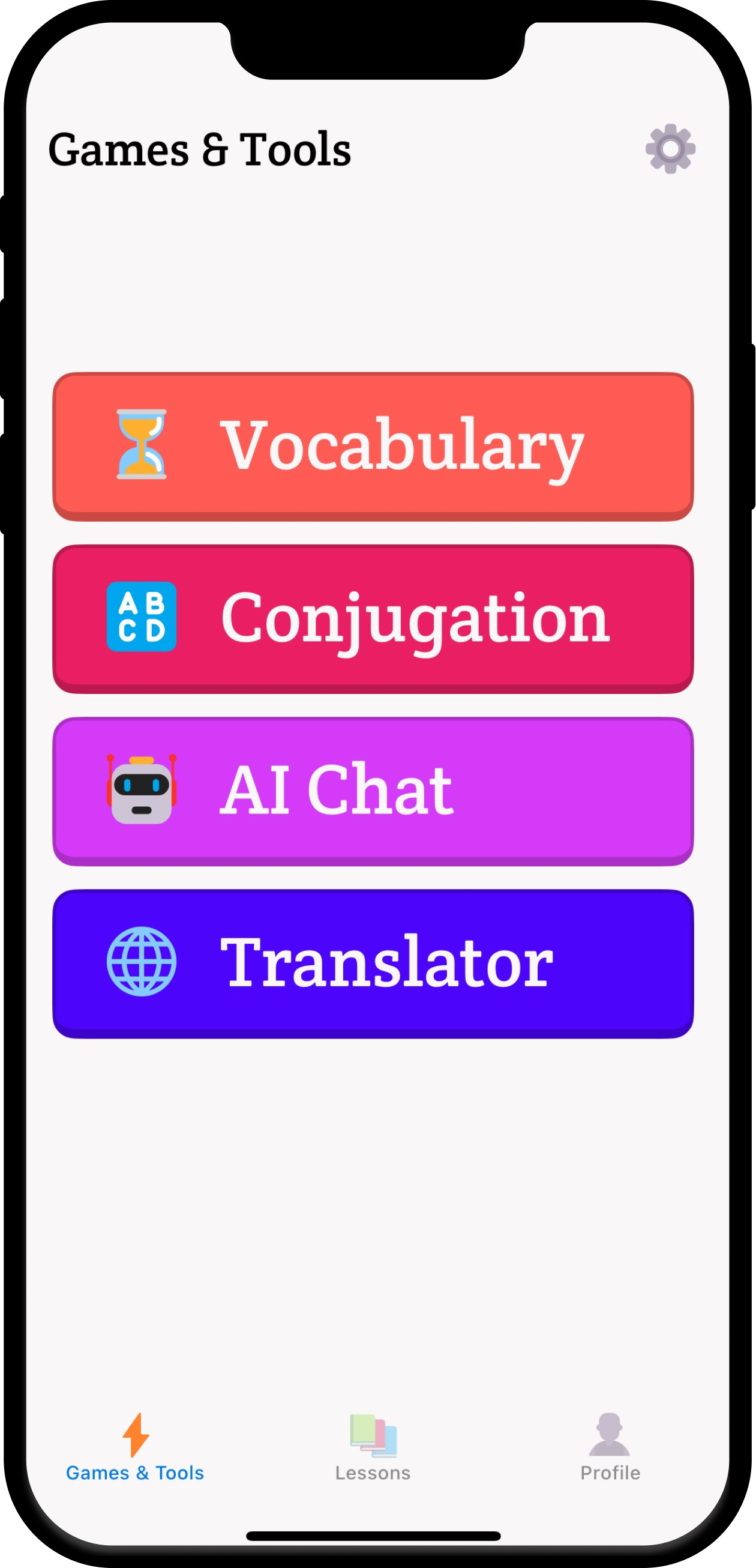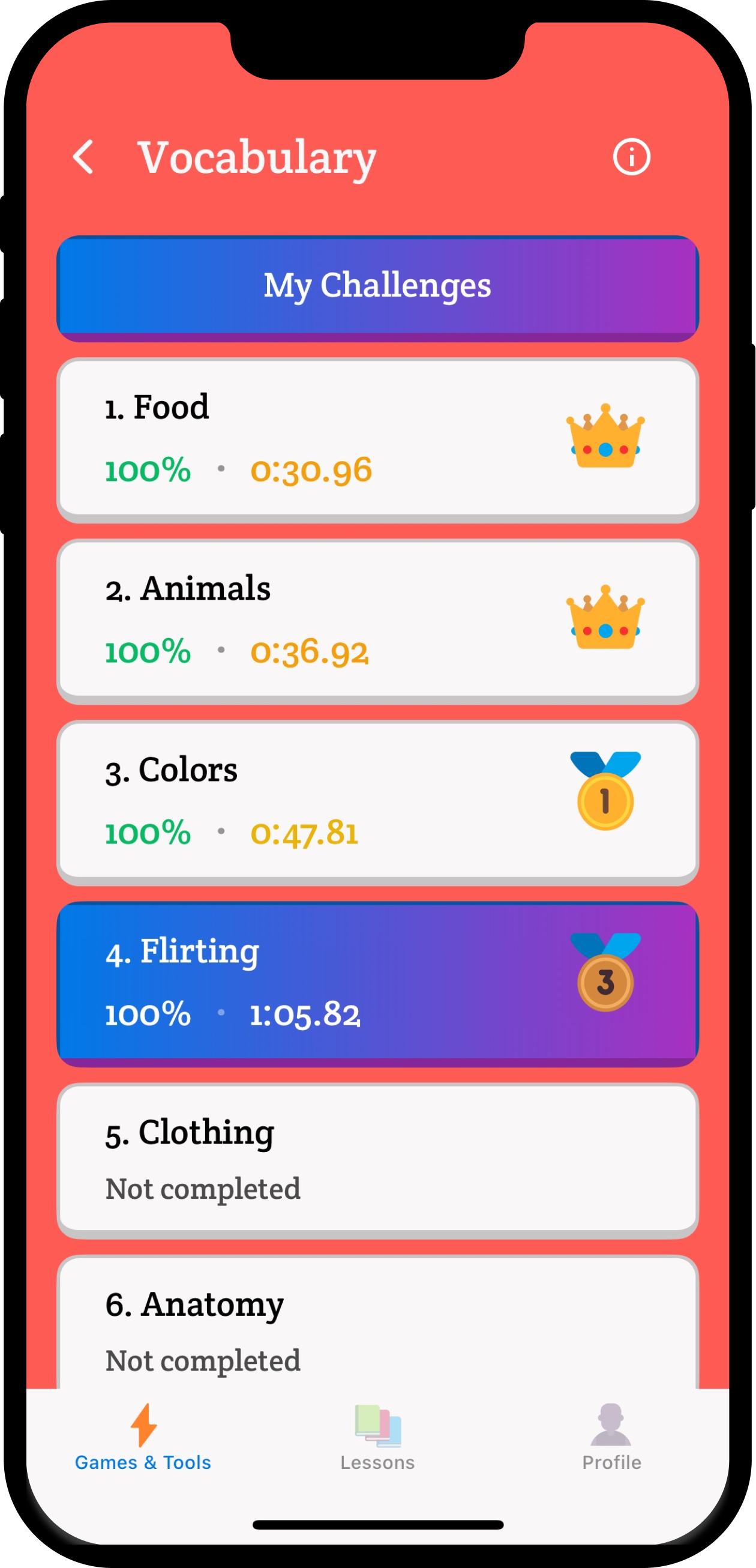100+ Norwegian Slang Words and Expressions You Need to Know

Table of Contents
- Common Everyday Slang
- Youth & Modern Slang
- Expressions & Idioms
- Food & Drink Related
- Social & Friendly Terms
- Work & Money Related
- Informal Exclamations
- Regional Variations
- Vulgar Slang
- Love & Relationships
Ready to Learn More?
Try PolyChat's interactive language learning games and put your new vocabulary to the test!

Games & Tools
Essential tools for every learner

Timed Challenges
Practice vocabulary & conjugation

Interactive Games
Learn through engaging gameplay
Understanding Norwegian slang is essential for anyone wanting to connect authentically with Norwegian speakers and navigate the unique culture of Norway. While formal Norwegian is taught in schools, everyday conversations are filled with colorful expressions, regional variations, and modern slang that reflect the country's egalitarian values and contemporary lifestyle. This comprehensive guide introduces you to 100+ essential Norwegian slang words and expressions that will help you sound more natural and understand Norwegian culture.
Common Everyday Slang
- Kompis: Buddy, mate (very common). Hei kompis! (Hey buddy!)
- Kameraten: The buddy, mate. Kameraten min. (My buddy.)
- Vennen: The friend. Vennen min. (My friend.)
- Kar/Jente: Guy/girl. Den karen er morsom. (That guy is funny.)
- Type: Guy, character. Hvilken type er det? (What kind of guy is that?)
- Kul: Cool. Det er kult! (That's cool!)
- Fet: Cool, awesome (literally "fat"). Det var fett! (That was awesome!)
- Digg: Nice, cool. Det er digg! (That's nice!)
- Rått: Raw, cool, awesome. Det var rått! (That was awesome!)
- Sykt: Sick, crazy, awesome. Det er sykt bra! (That's sick good!)
- Penger: Money. Jeg har ikke penger. (I don't have money.)
- Cash: Cash (borrowed from English). Har du cash? (Do you have cash?)
- Hjemme: Home. Jeg drar hjem. (I'm going home.)
- Bil: Car. Bilen min er ødelagt. (My car is broken.)
- Jobb: Job. Jeg må på jobb. (I have to go to work.)
- Greier: Stuff, things. Hva er det for greier? (What is that stuff?)
- Familie: Family. Familien min. (My family.)
- Folk: People. Mange folk her. (Many people here.)
- Ferdig: Done, finished. Nå er jeg ferdig! (Now I'm done!)
- Kom igjen: Come on. Kom igjen, la oss gå! (Come on, let's go!)
Youth & Modern Slang
- Hei: Hi, bye (very common). Hei, hvordan har du det? (Hi, how are you?)
- Ha det: Bye (literally "have it"). Ha det, vi sees! (Bye, see you!)
- God dag: Good day (formal). God dag alle sammen! (Good day everyone!)
- Hva skjer: What's happening. Hva skjer, kompis? (What's happening, buddy?)
- Hvordan går det: How's it going. Hvordan går det i dag? (How's it going today?)
- Bare bra: Just fine. Bare bra, takk. (Just fine, thanks.)
- Dritbra: Really good (literally "shit good"). Det var dritbra! (That was really good!)
- Kjempebra: Super good. Kjempebra! (Super good!)
- Helt sykt: Totally sick/awesome. Det var helt sykt! (That was totally awesome!)
- Sinnsykt: Insanely, extremely. Det er sinnsykt bra. (That's insanely good.)
- Bestevenn/Bestevenninna: Best friend (male/female). Min bestevenn. (My best friend.)
- Kjæreste: Boyfriend/girlfriend. Kjæresten min. (My boyfriend/girlfriend.)
- Babe: Babe (borrowed from English). Hei babe. (Hi babe.)
- Crew: Crew (borrowed from English). Crewet mitt. (My crew.)
Expressions & Idioms
- Det spiller ingen rolle: It doesn't matter. Det spiller ingen rolle. (It doesn't matter.)
- Sånn er det bare: That's just how it is. Sånn er det bare. (That's just how it is.)
- Det kan du si: You can say that. Det kan du si! (You can say that!)
- Ingen problem: No problem. Ingen problem, jeg hjelper deg. (No problem, I'll help you.)
- Selvfølgelig: Of course. Selvfølgelig kommer jeg med. (Of course I'll come along.)
- Kanskje: Maybe. Kanskje i morgen. (Maybe tomorrow.)
- Ikke i det hele tatt: Not at all. Jeg liker det ikke i det hele tatt. (I don't like it at all.)
- Akkurat: Exactly. Akkurat! (Exactly!)
- Det stemmer: That's right. Det stemmer! (That's right!)
- Faen: Damn (mild). Faen, jeg glemte det. (Damn, I forgot it.)
- Herregud: Good Lord. Herregud, hva skjer? (Good Lord, what's happening?)
- Kom igjen da: Come on then. Kom igjen da, la oss gå! (Come on then, let's go!)
- Sånn ja: Like that, good job. Sånn ja! (Good job!)
Food & Drink Related
- Mat: Food. Maten er deilig. (The food is delicious.)
- Brød: Bread. Jeg kjøper brød. (I'm buying bread.)
- Kaffe: Coffee. Vil du ha kaffe? (Do you want coffee?)
- Te: Tea. Te med sukker. (Tea with sugar.)
- Øl: Beer. Skal vi ta en øl? (Shall we have a beer?)
- Vin: Wine. Rødvin er godt. (Red wine is good.)
- Akevitt: Traditional Norwegian spirit. Akevitt til maten. (Akevitt with the meal.)
- Smørbrød: Open-faced sandwich. Smørbrød med røkelaks. (Open sandwich with smoked salmon.)
- Kjøttkaker: Norwegian meatballs. Kjøttkaker med poteter. (Meatballs with potatoes.)
- Lefse: Traditional Norwegian flatbread. Lefse med smør. (Lefse with butter.)
- Fårikål: Traditional lamb and cabbage stew. Fårikål på høsten. (Fårikål in autumn.)
- Krumkake: Traditional Norwegian waffle cookie. Krumkake til jul. (Krumkake for Christmas.)
Social & Friendly Terms
- Venn/Venninne: Friend (male/female). Min beste venn. (My best friend.)
- Kollega: Colleague. Kollegaene mine er snille. (My colleagues are nice.)
- Nabo: Neighbor. Naboen er hyggelig. (The neighbor is nice.)
- Slektning: Relative. Slektningen min bor i Bergen. (My relative lives in Bergen.)
- Bror/Søster: Brother/sister. Storebror min. (My big brother.)
- Familie: Family. Stor familie. (Big family.)
- Folk: People. Norske folk. (Norwegian people.)
- Gruppe: Group. Gruppen vår av venner. (Our group of friends.)
- Lag: Team. Laget vårt er det beste. (Our team is the best.)
- Gjeng: Gang, crew. Hele gjengen. (The whole gang.)
Work & Money Related
- Arbeid: Work. Jeg har nytt arbeid. (I have new work.)
- Kontor: Office. Jeg jobber på kontor. (I work in an office.)
- Sjef: Boss. Sjefen er streng. (The boss is strict.)
- Kollega: Colleague. Kollegaene mine er hyggelige. (My colleagues are nice.)
- Lønn: Salary. Lønna mi er ikke høy. (My salary is not high.)
- Penger: Money. Jeg trenger penger. (I need money.)
- Kroner: Norwegian currency. Det koster 100 kroner. (It costs 100 kroner.)
- Euro: Euro. Vi bruker også euro. (We also use euro.)
- Firma: Company. Jeg jobber i et stort firma. (I work at a big company.)
- Bedrift: Business. Jeg har en liten bedrift. (I have a small business.)
- Timeplan: Schedule. Timeplanen min er fleksibel. (My schedule is flexible.)
- Ferie: Vacation. Jeg drar på ferie. (I'm going on vacation.)
Informal Exclamations
- Gud: God (exclamation). Gud, så stort! (God, how big!)
- Herregud: Good Lord. Herregud, hva skjedde? (Good Lord, what happened?)
- Å nei: Oh no. Å nei, det gjør vondt! (Oh no, that hurts!)
- Æsj: Yuck, ew. Æsj, det var ekkelt. (Yuck, that was disgusting.)
- Au: Ouch. Au, det gjør vondt! (Ouch, that hurts!)
- Uff: Ugh, phew. Uff, så sliten jeg er! (Ugh, how tired I am!)
- Å: Ah, oh. Å, nå forstår jeg. (Ah, now I understand.)
- Nå: Well, oh. Nå, hva skal vi gjøre da? (Well, what should we do then?)
- Hmm: Hmm. Hmm, kanskje. (Hmm, maybe.)
- Ops: Oops. Ops, det var en feil. (Oops, that was a mistake.)
Regional Variations
Eastern Norway (Østlandet)
- Østlending: Person from Eastern Norway. Jeg er østlending. (I'm from Eastern Norway.)
- Oslo-dialekt: Oslo dialect. Snakker oslo-dialekt. (Speaks Oslo dialect.)
Western Norway (Vestlandet)
- Vestlending: Person from Western Norway. Jeg er vestlending. (I'm from Western Norway.)
- Kva: What (Western Norwegian). Kva gjer du? (What are you doing?)
- Eg: I (Western Norwegian). Eg skal heim. (I'm going home.)
Northern Norway (Nord-Norge)
- Nordlending: Person from Northern Norway. Jeg er nordlending. (I'm from Northern Norway.)
- Æ: I (Northern Norwegian). Æ e fra nord. (I'm from the north.)
- Dæ: You (Northern Norwegian). Kor ska dæ? (Where are you going?)
Trøndelag
- Trønder: Person from Trøndelag. Jeg er trønder. (I'm from Trøndelag.)
- Æ: I (Trøndelag dialect). Æ ska hjem. (I'm going home.)
- Du: You (emphasized in Trøndelag). Du e snill. (You're nice.)
Vulgar Slang
- Dritt: Shit. Det er dritt. (That's shit.)
- Piss: Piss. Det er piss. (That's piss/crap.)
- Faen: Damn, fuck. Faen ta det! (Damn it!)
- Helvete: Hell. For helvete! (For hell's sake!)
- Ræv: Ass. Hold kjeft, ræv! (Shut up, ass!)
- Fitte: Cunt (very vulgar). Hold kjeft, fitte! (Shut up, cunt!)
- Kuk: Dick (vulgar). Stor kuk. (Big dick.)
- Idiot: Idiot. Du er en idiot. (You're an idiot.)
- Taper: Loser. Sånn taper. (Such a loser.)
- Dust: Idiot, fool. Han er en dust. (He's a fool.)
Love & Relationships
- Kjærlighet: Love. Du er kjærligheten min. (You're my love.)
- Skatt: Treasure, darling. Skatten min. (My darling.)
- Jeg elsker deg: I love you. Jeg elsker deg så mye. (I love you so much.)
- Hjerte: Heart (term of endearment). Hjertet mitt. (My heart.)
- Sjel: Soul (term of endearment). Sjela mi. (My soul.)
- Liv: Life (term of endearment). Livet mitt. (My life.)
- Vakker: Beautiful. Du er så vakker. (You're so beautiful.)
- Søt: Sweet, cute. Du er søt. (You're sweet.)
- Kyss: Kiss. Gi meg et kyss. (Give me a kiss.)
- Klem: Hug. Jeg trenger en klem. (I need a hug.)
- Gift: Married. Jeg er gift. (I'm married.)
- Forlovet: Engaged. Vi er forlovet. (We're engaged.)
- Singel: Single. Jeg er singel. (I'm single.)
Gaming & Internet Culture
- Spill: Game. Det spillet er kult. (That game is cool.)
- Gamer: Gamer (borrowed from English). Jeg er gamer. (I'm a gamer.)
- Level: Level (borrowed from English). Hvilket level har du? (What level do you have?)
- Boss: Boss (game boss). Siste boss er vanskelig. (The final boss is difficult.)
- Lag: Lag (connection issues). Jeg har dårlig lag. (I have bad lag.)
- Ping: Ping (internet latency). Ping er høy. (The ping is high.)
- Noob: Noob, newbie. Du er en noob i det spillet. (You're a noob at that game.)
- Pro: Pro, professional player. Han er pro i CS. (He's pro at CS.)
- Skill: Skill, ability. Han har god skill. (He has good skill.)
- Team: Team. Teamet vårt er sterkt. (Our team is strong.)
- Chat: Chat. Skriv i chatten. (Write in chat.)
- Stream: Stream. Jeg streamer. (I'm streaming.)
Traditional & Cultural Terms
- Hjemland: Homeland. Jeg elsker hjemlandet mitt. (I love my homeland.)
- Tradisjon: Tradition. Gammel tradisjon. (Old tradition.)
- Folkedans: Folk dance. Vi danser folkedans. (We're dancing folk dance.)
- Bunad: Traditional Norwegian costume. Norsk bunad. (Norwegian traditional costume.)
- Friluftsliv: Outdoor life (important Norwegian concept). Friluftsliv er viktig. (Outdoor life is important.)
- Janteloven: The Law of Jante (cultural concept). Janteloven sier... (The Law of Jante says...)
- 17. mai: Constitution Day. 17. mai feiring. (Constitution Day celebration.)
- Midnattsol: Midnight sun. Midnattsol om sommeren. (Midnight sun in summer.)
Learn Other Languages from Norwegian with PolyChat
Are you a Norwegian speaker looking to learn other languages? PolyChat is the perfect app for you! As a Norwegian speaker, you have unique advantages when learning certain languages, and PolyChat leverages these connections to accelerate your language learning journey.
Why Norwegian Speakers Excel at Learning These Languages:
🇩🇰 Danish - Almost identical! Norwegian and Danish are mutually intelligible with 90%+ shared vocabulary and grammar.
🇸🇪 Swedish - Close Nordic cousin with very similar structures and thousands of cognates.
🇩🇪 German - Strong Germanic connection with similar grammatical patterns and vocabulary roots.
🇳🇱 Dutch - Fellow Germanic language with surprisingly familiar sentence structures.
🇬🇧 English - Shared Germanic foundation plus centuries of linguistic exchange.
PolyChat's Advantage for Norwegian Speakers:
✅ Nordic Mastery - Learn Danish and Swedish effortlessly using your Norwegian foundation
✅ Germanic Bridge - Leverage shared roots to master German, Dutch, and English faster
✅ Romance Gateway - Use your strong grammatical understanding for Spanish, French, Italian
✅ Global Reach - Connect with 95+ million Vietnamese speakers, 24+ million Romanians, and more
Ready to become a polyglot? Download PolyChat today and discover how your Norwegian language skills can unlock a world of new languages!
PolyChat - The best app to learn languages from Norwegian 🇳🇴→🌍
This comprehensive guide provides essential Norwegian slang spanning everyday conversations, regional variations, and modern culture. Norwegian slang reflects the country's egalitarian values, love of nature (friluftsliv), and strong regional identities. The best way to master these expressions is through practice with native speakers and consuming Norwegian media like films, music, and social media content.
Related Posts
100+ Vietnamese Slang Words and Expressions You Need to Know
Discover essential Vietnamese slang and modern expressions to connect with native speakers and understand contemporary Vietnamese culture.
Read more100 Spanish Slang Words You Need to Know
Learn the most common Spanish slang words and phrases that will help you sound like a native speaker in everyday conversations.
Read more100 French Slang Words and Expressions You Should Know
Discover essential French slang words and expressions that will help you sound more natural and understand everyday conversations with native speakers.
Read more